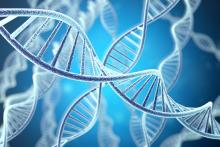UBC Science researchers have been awarded $3 million in the latest round of operating grants announced by Canada's national health research funding agency, the Canadian Institutes of Health Research (CIHR).
The support will enable the researchers to investigate a range of health issues, including E. coli infection, AIDS-associated Cryptococcosis, Myocarditis, and cell signalling, which plays a fundamental role in a range of diseases and viral infections.
UBC researchers earned a total of $19,443,199 in this round of funding.
Brett Finlay, with UBC's Michael Smith Laboratories and the Department of Microbiology and Immunology, will lead a project investigating how a particularly dangerous form of E. coli secretes and injects effectors into host cells.
James Kronstad, also with MSL and Microbiology and Immunology, will focus on how deadly fungal pathogens attack people with weakened immune systems, including those with acquired immune deficiency syndrome.
Physics and Astronomy's Carl Hansen will use newly developed tools that use micro-scale channels and valves to conduct the first detailed analysis of signalling at the single cell level.
Marc Horwitz, with the Department of Microbiology and Immunology, will investigate how Myocarditis, a condition that results in inflammation of heart muscle, progresses from a short-lived disease to a chronic disease.
And Microbiology and Immunology's John Thomas Beaty will study how a bacterial cell controls the production of a virus-like particle that transfers genes from a donor to a recipient cell.
CIHR is the Government of Canada's agency responsible for funding health research in Canada.
Musqueam First Nation land acknowledegement
We honour xwməθkwəy̓ əm (Musqueam) on whose ancestral, unceded territory UBC Vancouver is situated. UBC Science is committed to building meaningful relationships with Indigenous peoples so we can advance Reconciliation and ensure traditional ways of knowing enrich our teaching and research.
Learn more: Musqueam First Nation
Faculty of Science
Office of the Dean, Earth Sciences Building2178–2207 Main Mall
Vancouver, BC Canada
V6T 1Z4


